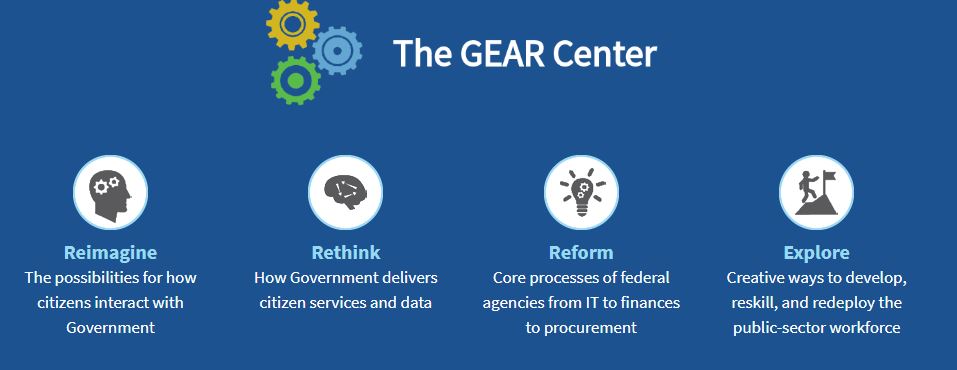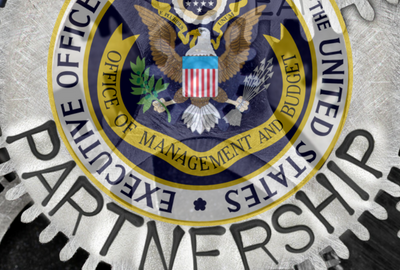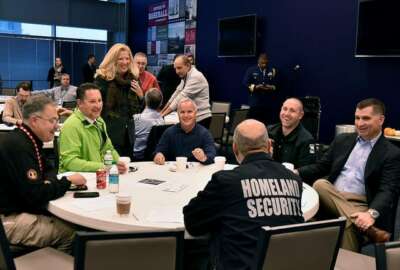
OMB putting a twist on applied research to solve federal management challenges
OMB’s Margaret Weichert said the administration will provide a few million dollars in seed money to get the Government Effectiveness Advanced Research Center off...
The Office of Management and Budget’s idea to create a public-private applied research center to focus on federal challenges is not necessarily new. Over the last half century, there are dozens of examples of partnerships between the government and the private sector around challenges such as transportation, parks and recreation, and high-speed Internet access.
But what is different about OMB’s plan to create the Government Effectiveness Advanced Research (GEAR) Center is the focus on internal federal challenges such as workforce modernization and the use of data.
“When I arrived here in government, I was actually surprised to find there was a lot of cross-cutting applied research that brought that academic rigor to the problems of management in the public sector. The challenges we have around procurement, HR and IT are all intersecting challenges that I believe interdisciplinary skillsets of the private sector and the academic world will help us solve,” said Margaret Weichert, the deputy director for management at OMB, during a webinar on the GEAR effort on Aug. 23. “At its heart, what we are hoping to achieve in the GEAR Center, is to get your innovative ideas from the marketplace of ideas that you all live in and how we might tackle those challenges.”

Much of that applied research Weichert was referring to is done by places like the Partnership for Public Service, the National Academy of Public Administration and the Performance Institute and industry, which pays for the reports and studies.
While there is a level of objectivity in those efforts, the vendors aren’t paying tens of thousands of dollars for a study that doesn’t benefit their business line. For example, if vendor X provides management consulting services, they don’t want a report that finds agencies have plenty of skills to manage programs and projects.
The question then comes back to whether this GEAR Center can be any different? Can it be sustainable?
Those are among the questions OMB is asking for feedback by Sept. 14 on an RFI issued earlier this month.
Weichert said the vision of the GEAR Center is one that has an “independence of thought” and isn’t hamstrung by federal procurement rules and requirements.

“We know there are a number of universities who have centers of academic research. We know across government there are experts at Defense Advanced Research Projects Agency, Defense Innovation Unit in the Defense Department, the National Science Foundation involved in working with the academic community and many good government organizations have many good ideas. My personal favorite, state and local governments have great ideas about how they are partnering in their communities to transform old-style jobs into the jobs of the 21st century,” she said. “We didn’t want to confine our thinking to our initial hypotheses. We wanted actually to go to the experts, the people who are experts in data science, experts in continuous learning and reskilling and ask you what would be the things you would focus on and how might we structure this? How do we fund test and learn activities?”
At the end of the day, Weichert said the GEAR Center is about innovation and the ability to test theories that may lead to the need to change policies or laws.
“Part of the goal of the center is to help unlock money for infrastructure, innovation through test and learn activities that would benefit not only the government, but the private sector providers of those solutions,” she said. “This would be a message to the private sector folks…think about all the things you find difficult when trying to pitch new ideas or new economic models to government, how a center like this might help us ingest that innovation and how we might use this to create an on-ramp to pay-for-performance type solutions or better alignment to pay-as-you-go models. Those are all the kinds of things I could see happen here.”
OMB to come up with initial funding
Mark Bussow, a program manager in OMB’s Office of Performance and Personnel Management (OPPM), said the GEAR Center is expected to launch in 2019.
He said a lot of the responses to the RFI will help influence what the center will eventually look like. Weichert added that OMB will have some seed funding of a couple millions of dollars to get the center going.
She said the GEAR Center likely will be similar to centers at academic institutions that take on corporate funding to work on projects that have a commercial benefit in the future and can create long-term sustainable funding models that way.
“We at the government can provide a seat at the table, clarity around the vision and the agenda. We’d anticipate in whatever form that this center takes shape that the governance model would include probably two seats on whatever governing body there would be for this center for the government. One would probably be the DDM position and then we would probably have more of an institutional director at GSA also have a seat. Whether that’s the administrator or someone else is yet to be determined,” Weichert said. “The goal in having those two seats at the table is to help create that on-ramp back into the government. Ultimately the vision would be that the funding model would be self-sustaining outside of government.”
Weichert said the real measure of success is more than creating a test-and-learn environment and a self-sustaining funding model. It is taking the applied research and transforming the government.
Latest Workforce News
Weichert said the biggest difference in the GEAR Center approach and the other previous ideas is the lens by which the initiative is looking for solutions. She said GEAR is taking an operator lens versus a legal or policy lens.
“Both are critical to any question that has to do with government, but starting with the question of how do we act differently and how do we implement differently is a question that is normally in government only gets asked around mission,” she said. “DoD asks this questions all the time in the field. FEMA asks this question all this time in the field. But it hasn’t been a priority to invest in these types of questions around disciplines that are just not that talked about in Washington. All the things I’m passionate about on the management agenda, finance, accounting, procurement, IT, information security, personnel policy, digital customer experience are not common priorities.”
She said the GEAR Center would help find those communities outside of government to help agencies better understand how technology can improve services to citizens.
“Government is in the services business, at least 50 percent of our services are delivered electronically, but we don’t invest that way,” she said. “That is the biggest difference to shift from the inside out to an outside in and look at what industry is doing around these same questions.”
Read more of the Reporter’s Notebook
Copyright © 2025 Federal News Network. All rights reserved. This website is not intended for users located within the European Economic Area.
Jason Miller is executive editor of Federal News Network and directs news coverage on the people, policy and programs of the federal government.
Follow @jmillerWFED
Related Stories






